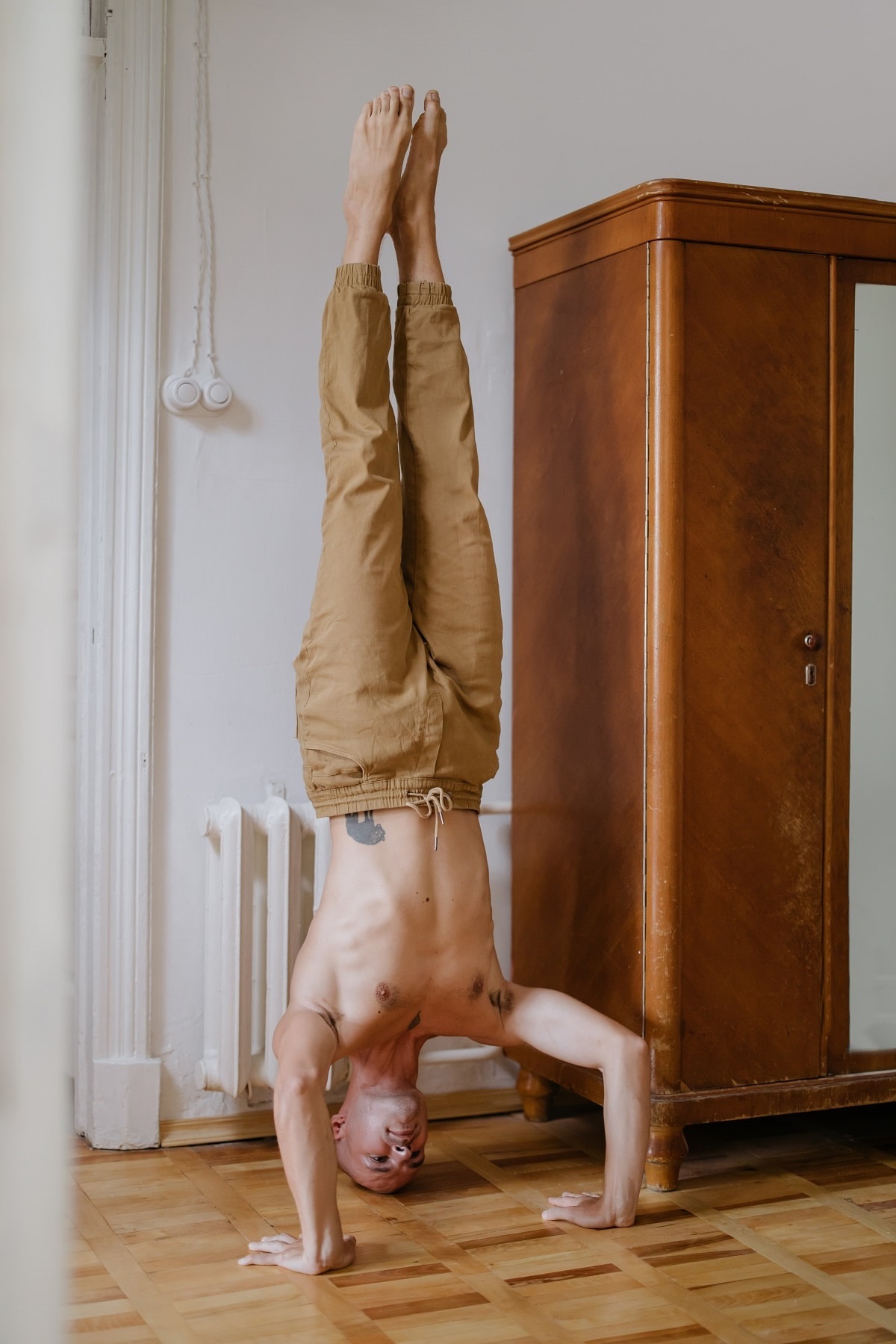1
HOME > Health & Fitness >
SELF-ESTEEM AND MALE BODY IMAGE
HOW MEN TAKE GREAT PAINS FOR ABNORMAL GAINS
Written by Samuel Walters in Health & Fitness on the 26th April 2023

Do you ever flaunt your six-pack? Put on a gun show? Let the cleavage of your pecs peep out from a low-cut t-shirt? Or perhaps you’re not there yet but are constantly chasing those “gains” and dreaming of the day. Maybe you’re the type of person who couldn’t care less about all that. Or maybe the way your body looks really troubles you?
Body image is more traditionally thought of as an issue for women than for men, but it concerns blokes too. OK, you might not think so if you head down to your local boozer and try to count the beer guts; but the fact is that the images presented to us on a daily basis do affect our ideas about bodies and how a man should look. These images can mess with your perspective and affect your self-esteem.

It’s really remarkable how the presentation of men’s bodies has shifted over the last few decades. If you peruse the covers of magazines, take a trip to the cinema or watch almost any big-budget TV series today, you find men’s bodies that are all absurdly muscular. Yes, absurdly. The physiques on display don’t look in any way ordinary. They are not the bodies of average men, but nor are they the bodies of men who physically exert themselves for a living, such as, say, builders or soldiers. What they actually look like are the physiques of body-builders. The odd thing is that this has become the norm. We have become so used to this sort of bulging appearance that we no longer see it as peculiar.

The real measure of just how far our perceptions have been warped is that even professional athletes can look a bit scrawny to us these days. Don’t buy it? OK, well do a quick comparison. Look at photos of Steve Redgrave in his prime, the rowing legend with more records and Olympic medals than anyone can remember. Or do an image search of David Beckham in his playing days, or Novak Djokovic the tennis champ. Now look at the torsos on the covers of Men’s Health, or those of screen stars such as Christian Bale, Tom Hardy and Daniel Craig. The athletes’ bodies don’t look very striking to us anymore, because for all that they’re extremely functional and powerful, they’re nowhere near as bulky or swollen as the physiques of the actors or fitness models. How ridiculous is that?

It wasn’t always like this. Male leads of the past once had fairly ordinary, albeit athletic, bodies – Marlon Brando, Charlton Heston, Robert Redford, Gregory Peck, Roger Moore and so on. Then came the ‘80s – the decade when greed was good and bigger was better – and bodybuilders Arnie and Sylvester Stallone smashed their way onto our screens. They couldn’t really act at all, but what they could do was lift weights and flex. It didn’t matter that their delivery was wooden and their accents unintelligible, because their bodies were so extraordinary to look at that their films brought in the crowds. Most people had never seen anything like it back then because bodybuilding was still a fairly niche activity and the average eye was just totally unaccustomed to such physiques. The phenomenon was so jaw-dropping that it served as a winning Hollywood formula for almost fifteen years. It wasn’t until the mid-‘90s that audiences finally grew weary of all those very-big-men-blow-shit-up type films, but by then the new precedent for men’s bodies had been well and truly set.

As we moved into the new millennium, that sort of body went from being the preserve of larger-than-life characters to something that everyday men aspired to. And now we find that it’s the norm, whether you like it or not. Today, it’s no longer enough to be fit and healthy; you have to be a giant. It’s no longer enough to be athletic; you have to be positively bulging. My point isn’t that you shouldn’t go to the gym and pump iron. It’s simply that it’s useful to be aware of the ways in which the norms around male body image have changed in recent years. When even professional athletes don’t look impressive to us anymore, something has gone wrong somewhere.
Trending
2
3
4
5
6
7
8
9
10








